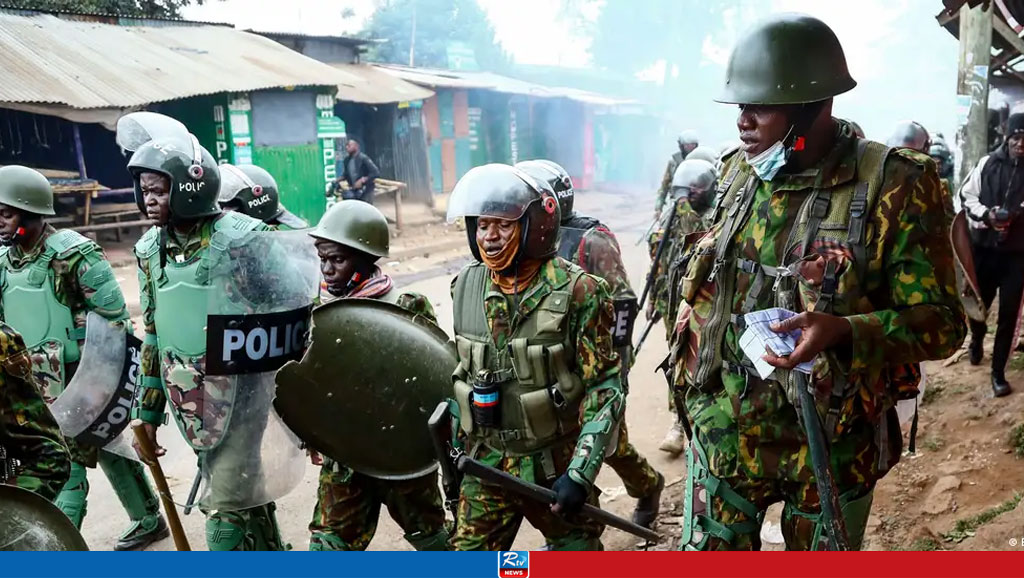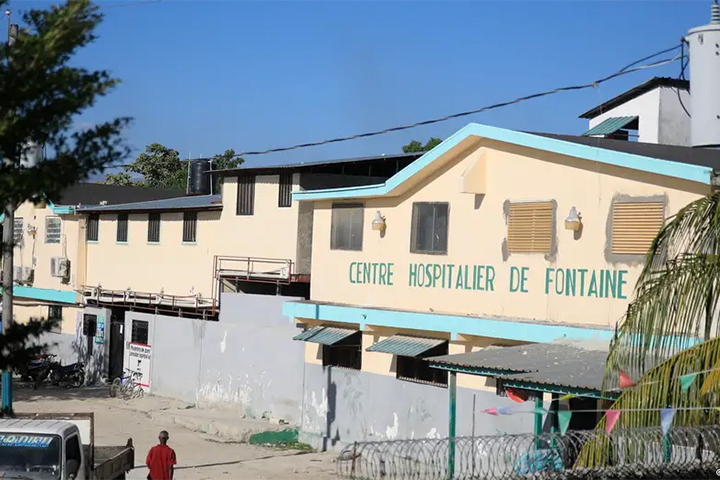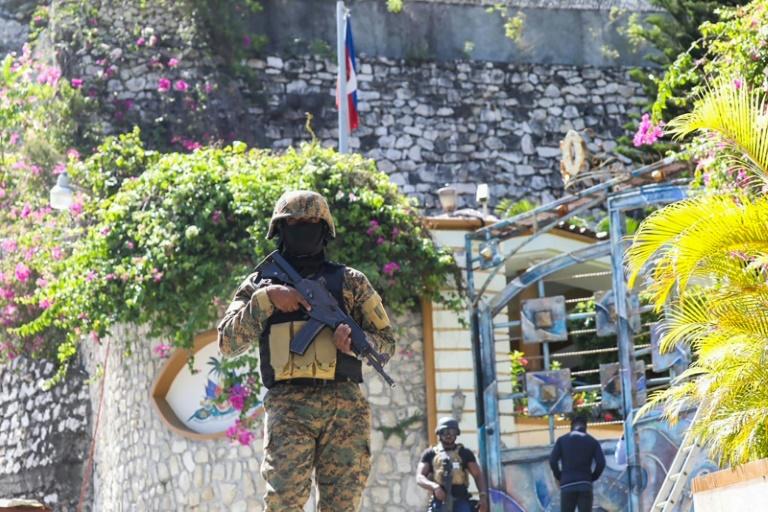Kenya pauses its police deployment to Haiti
Kenyan officials say they are still committed to sending police officers to Haiti to combat gang violence. But, after Haiti's PM agreed to quit, the deployment has been put on ice until a new government is installed.
Authorities in Kenya are putting on hold a planned deployment of 1,000 police officers to a UN Security Council-approved mission to combat gang violence in Haiti.
The UN's highest decision-making body last year greenlighted the Kenya-led, multinational mission to the impoverished Caribbean nation, where armed groups have largely overrun the capital, Port-au-Prince .
But Haitian Prime Minister Ariel Henry, who had requested the deployment of a foreign armed force a year ago, said on Tuesday that he would resign from his position, throwing the would-be mission into disarray.
Why is Haiti's PM quitting?
The armed groups, who rule much of the capital, had demanded Henry's departure after they launched a series of attacks on police stations, prisons and other infrastructure.
Henry agreed to step down after mounting pressure and a surge in violence.
Armed groups have prevented him from returning from Puerto Rico following a trip to Kenya last week, leaving him stranded in the US territory.
"I'm asking all Haitians to remain calm and do everything they can for peace and stability to come back as fast as possible," Henry said in a video address announcing his decision to step down.
But Henry's move has thwarted Kenya's effort to send troops to Haiti, senior government officials said.
Abraham Korir Sing'Oei, a Kenyan Foreign Ministry official told Kenya Television Network that it would be difficult to deploy police officers to Haiti in the absence of a recognized government there.
"What has happened over the last few hours presents a change in circumstances, because there is no administration on which to anchor a deployment. So as such we would have to wait and see what kind of administration is going to be installed in Haiti," Sing'Oei said.
For some analysts the current political turmoil in Haiti certainly creates a vacuum that needs addressing before any deployment.
Haruun Isaack, a political analyst, told DW that Haiti's security situation has become complex following Henry's resignation. He suggested that only a clear long-term strategy would deal with the crisis.
"What options or chances are there for Kenyan police to go and intervene and support the government of Haiti if at all there is government in Haiti?" Isaack said, adding that, if there is no leadership in place, then it may be perceived that the forces are dealing with rebels.
Could Kenya U-turn on the mission?
Kenyan Interior Minister Kithure Kindiki said the government was still committed to its primary objective of assisting authorities in Haiti.
"The status is, as you know it, there was a small court matter," he said. "That small matter has been resolved because the court said we needed to have a reciprocal agreement with the Haiti. That reciprocal agreement has already been signed about a week ago, so we are now in the pre-deployment stage. All the other programs are in place including the status of forces agreement."
Kindiki said that, when the deployment eventually takes place, Kenyan police officers will be responsible for patrolling high-risk areas, providing support for humanitarian aid distribution, and working with and training Haitian national police personnel.
"Kenya is the lead nation, but there are so many other countries that have pledged to contribute troops, and this came from the mandate of the United Nations Security Council, so it's part of our International obligations," Kindiki said.
Nerima Wako-Ojiwa, a political analyst, told DW she doubts that Kenya's government would back down on its decision to send troops to Haiti despite the ongoing political turmoil.
"Our president is going to remain firm; I do not see any chance of him stepping down and pulling away to send police officers [to Haiti]," she said.
Is the US influencing Kenya's resolve?
Wako-Ojiwa said Kenya's quest to support the United States was influencing its resolve to hold on to the multinational mission.
"So you can clearly see that the relationship in terms of America is to support America, and America being in an election year this time around, it is going to be very difficult for them to be involved in peace keeping processes," she said. "They have to rely on their allies, so Kenya is going to remain firm."
US State Department spokesperson Matthew Miller told reporters that he understands Kenya's concerns.
"If you look at what the Kenyan government said in its statement is that they have to have a government with which to collaborate, which has been an important part of their understanding. It's a perfectly natural thing to expect," he said.
What do ordinary Kenyans make of the Haiti mission?
Martin Njoroge, a businessman who supports the deployment, told DW from Kenya's capital, Nairobi, that if Haiti isn't supported it will collapse into a failed state.
"Kenyans actually support this peace mission, but I think it is a wake-up call for Africans, for Kenyans to be in touch with history," Njoroge said. "Nothing happens in a vacuum. Kenya is the only one that agreed to go to Haiti."
Not everyone supports the idea — especially after Henry announced his resignation.
Dennis Otieno, another businessperson, told DW that he was concerned about the safety of Kenyan officers during such a volatile time in Haiti.
"This idea is a small-minded idea, narrow-minded, one-sided, pig-headed, parochial idea," Otieno said. "It is as if you are driving somebody from a sufferer's surrounding to where there is a thirst for gunfire — 76 people have lost their lives."
Wako-Ojiwa said such safety concerns were legitimate and must not be ignored.
"We are talking about preparation in terms of training, [for] our police officers. People are worried that they might not have the capacity to deal with the kind of violence [in Haiti]," she said, adding that existing ammunition and equipment are insufficient.
14 Mar 2024,18:00
















 Live Tv
Live Tv





